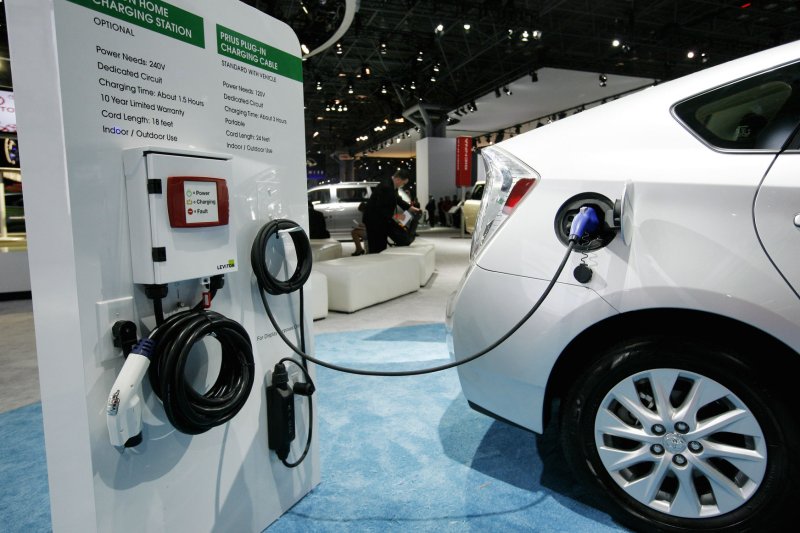A Toyota Prius is seen hooked to a charging station at the New York International Auto Show. A report by AAA Thursday said outside temperatures below 20 degrees can reduce battery range by 41 percent. File Photo by Monika Graff/UPI |
License Photo
Feb. 7 (UPI) -- Electric vehicles and cold weather don't mix. That's the finding of new research by AAA Thursday, which said low temperatures can cut EV ranges by more than 40 percent.
The auto advocacy group said in a 66-page report outside temperatures below 20 degrees Fahrenheit lead to a drain on the battery, partly because of the need to run the heater for long periods in the cabin. That could cut the vehicle's range by 41 percent, it said.
AAA said it tested the Tesla Model 3, Chevrolet Bolt, Jaguar I-Pace and Nissan Leaf Plus on dynamometers with and without the use of climate control. The findings showed extreme cold can have a significant impact on the battery's range.
"The appeal of electric vehicles continues to grow since a greater variety of designs and options with increased range have come into the market," Greg Bannon, AAA's director of Automotive Engineering and Industry Relations, said in a statement. "As long as drivers understand that there are limitations when operating electric vehicles in more extreme climates, they are less likely to be caught off guard by an unexpected drop in driving range."
AAA said when temperatures go below zero, like they did in much of the Midwest last month, electric vehicle range can be cut in half. The reason is EVs don't produce the heat combustion engines do, so powering the climate control system comes entirely from the battery.
Also, the lithium ion batteries in EVs prefer temperatures of about 70 degrees, as their chemistry doesn't perform efficiently in extreme cold.
"It's something all automakers are going to have to deal with as they push for further EV development because it's something that could surprise consumers," Brannon said.
AAA recommends EV owners plan well for long trips and use a mobile app to find nearby charging stations. Pre-heating the vehicle while it's plugged into the charger, reducing demand on the battery to regulate cabin temperature, is also recommended.















